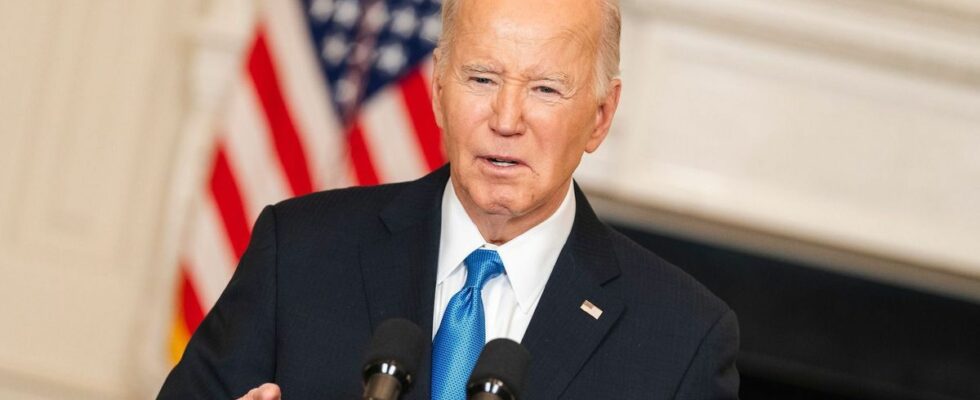Published on
Updated
Reading 3 min.
in collaboration with
Amélie Boukhobza (Clinical Psychologist)
It was a bolt from the blue on Sunday night: after months of questions about his physical and mental health, President Joe Biden announced that he was giving up on running for a second term. Is there a point when you realize it’s time to give up on a project? We asked a psychologist.
“I believe it is in the interest of my party and the country that I step down and focus solely on carrying out my duties as president until the end of my term.”.
This announcement was made by Democratic President Joe Biden last night, after weeks of questioning his standing in the race. The man, who just a few days ago still believed he could beat Donald Trump, has now resigned himself. But should this be taken as a failure or, on the contrary, as a conscious choice? When should we agree to give up? Amélie Boukhobza, a psychologist, answered our questions.
A decision that must be strategic
Let’s not rush into things. Giving up can quickly make you think of failure,”but in many cases it may well be the opposite, that is, a saving and intelligent decision” begins our expert.
Take Joe Biden, for example: his decision to withdraw from the presidency of the United States was due to health reasons. But this is not always the case for everyone. There are many other reasons why people give up on a project: limited resources, changing priorities, or insurmountable obstacles…
“This is not a sign of weakness, but a strategic assessment of what is best for the country in Biden’s case, and what is healthiest for oneself in other contexts,” emphasizes our shrink.
Are there any signs that it is wiser to give up?
Knowing when to give up is far from being a simple decision to make. This choice must therefore be based on several key elements according to Amélie Boukhobza.
- The resources. Resource assessment is essential.”If the time, money or energy required to complete a project far exceeds the expected benefits, it may be time to reconsider pursuing it”;
- Health. It is important to consider the impact on mental and physical health.”If a project has a significant negative impact on well-being, generates too much stress or raises too many questions and doubts, giving up can be a salutary decision”;
- Alignment or not with his life. Alignment with life goals also plays a vital role.”If a project no longer corresponds to aspirations or values, it is wise to reconsider its importance without questioning oneself”;
- The opinion of our loved ones (for whom we really matter). Finally, if those around us also consider that it is wiser to give up, it may be relevant to take this into account.We all have talents, but we can’t be great at everything!”
See surrender as a redirection, not as a failure
However, giving up on a project without feeling ashamed requires a change of perspective.
“Shame often arises during moments of questioning and procrastination, but once the decision is made and announced, relief quickly sweeps away this feeling,” “, emphasizes our expert. Rather than seeing the renunciation as a failure, it must therefore be considered as a strategic redirection.
“It is not an abandonment, but a realignment on priorities for a better future, less stressful, more adapted and perhaps less energy-consuming.”
Whether at the top of political life or in a project that is close to your heart, it is therefore useful to remember that each project, successful or not, is a learning experience.Accepting your limits is not a weakness, but a strength. Knowing when to let go when necessary to re-engage in projects more suited to you shows self-understanding and an ability to make informed decisions,” rour expert puts it into perspective.
In case you are not really sure, talking about your decision with relatives, colleagues or professionals can also help validate and reassure your choices. This is what the American president seems to have done in recent days.

